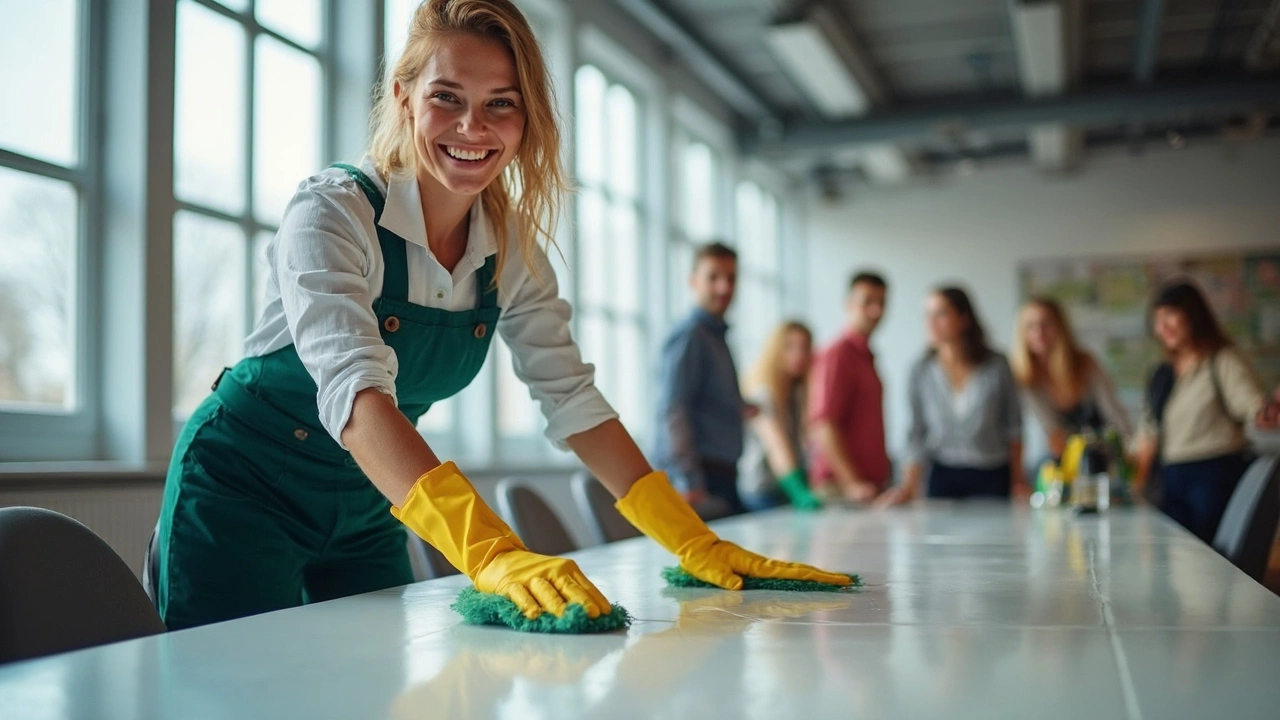Professional Cleaner: Expert Tips, Services & What to Expect
Thinking about hiring a professional cleaner or stepping up your own cleaning game? You’re in the right place. Below you’ll find straight‑forward advice on what pros actually do, how to pick the right service, and which tools give the best bang for your buck.
What a Professional Cleaner Does
A professional cleaner isn’t just someone with a mop. They follow a systematic checklist that covers every room, from dusting high corners to scrubbing kitchen grease. Typical tasks include window cleaning with streak‑free solutions, deep‑cleaning carpets, and tackling stubborn stains like baked‑on oven grease. They also know when to use eco‑friendly products—so you get a spotless home without harsh chemicals.
How to Choose the Right Cleaner
Start by asking about the cleaner’s cleaning plan. Do they separate duties into regular upkeep and deep‑clean sessions? A good service will explain the difference and suggest a schedule that fits your lifestyle. Next, compare pricing. In 2025, average house‑cleaning rates range from £15‑£25 per hour, but extra tasks such as a builder’s clean or post‑renovation sweep can add to the bill.
Don’t forget to check reviews for reliability and punctuality. A cleaner who shows up on time and respects your space is worth the extra cost. If you’re eco‑conscious, ask which green products they use—ingredients like vinegar, baking soda, or certified green concentrates are common, and many pros carry their own reusable microfiber cloths.
If you’re the one offering cleaning services, focus on a few specialties to stand out. Mastering window cleaning with the right water‑soluble solution or perfecting the no‑streak method can land you more clients. Also, consider offering a quick tip booklet (like “DIY vs Store‑Bought Window Cleaner”) as a free add‑on; it shows expertise and builds trust.
Another practical tip: ask for a detailed quote before any work begins. A transparent estimate should break down labor, supplies, and any extra fees like travel or heavy‑equipment usage for pressure washing.
For households with pets or kids, make sure the cleaner knows how to treat urine stains or dried bodily fluids. Using enzymatic cleaners on carpets and mattresses can eliminate odors without harsh chemicals, keeping the home safe for everyone.
When scheduling, think about the best time of day for your routine. Morning cleanings work great for families who need a fresh start, while evening sessions suit busy professionals who prefer a quiet, uninterrupted environment.
Finally, keep communication open. A quick message about special requests—like focusing on the kitchen’s baked‑on grease or removing black mold from exterior walls—helps the cleaner prioritize and deliver exactly what you need.
Whether you’re hiring or providing cleaning services, the right approach boils down to clear expectations, fair pricing, and a commitment to quality. Follow these pointers and you’ll enjoy a spotless space without surprise headaches.

What Makes a Good Office Cleaner?
A good office cleaner is essential for maintaining a productive and healthy work environment. This article covers the key qualities and skills that make an office cleaner effective, along with interesting facts and practical tips. It highlights the importance of attention to detail, reliability, and proper training in modern cleaning technology. Discover how cleanliness impacts workplace morale and the surprising benefits of a spotless office.
Read More